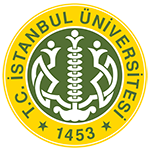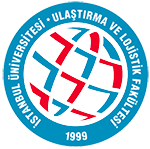
Ulaştırma ve Lojistik Kongreleri
- Türkçe
- Özet
- 2020
Kamu Hastaneleri Eczanelerinde İlaç Satınalma Süreci: Örnek Bir Uygulama
Mehmet Sıtkı Saygılı
Dr. Öğr. Üyesi, Bahçeşehir Üniversitesi, İstanbul, Türkiye
Cihan Hekim
Uzman, Bahçelievler Devlet Hastanesi, İstanbul, Türkiye
Çalışmanın Amacı: Kamu hastanelerinin hizmet sunmak için ihtiyaç duyduğu ilaç, cihaz, ofis malzemesi, tekstil ürünleri gibi farklı malzemelerin satınalma süreçleri farklılık göstermektedir. Çalışmanın amacı, kamu hastanelerinde eczane bölümlerinin ilaç satınalma sürecindeki mevcut uygulamalara ve karşılaşılan güçlüklere değinerek çözüm önerileri sunmaktır. Yöntem: Çalışmada derinlemesine mülakat yönteminden yararlanılmıştır. İstanbul’da hizmet veren bir devlet hastanesinin satınalma ve eczane bölümlerinde çalışan personellerle yarı yapılandırılmış sorular üzerinden mülakatlar yapılmıştır. Yapılan görüşmelerle elde edilen sonuçlar tümevarım yaklaşımıyla değerlendirilerek, iş süreçleri yorumlanmıştır. Bulgular: Kamu hastanelerinde ilaç satınalma sürecinde Kamu İhale Kanunu hükümlerine bağlı olarak ihale yöntemi uygulanmaktadır. İhale ile fiyat teklifi alınamayan ilaçlar için de doğrudan temin yöntemine başvurulmaktadır. İlaçların ihale süreci, stok takibi, giriş ve çıkışları gibi tüm süreçlerde bilgi yönetim sistemlerinden faydalanılmaktadır. Bölgesel olarak kurulan stok birimleri sayesinde hastane ilaç stokları toplu olarak takip edilmektedir. Tedarik edilen ilaçlar muayene komisyonu kabulünden sonra eczane depolarına giriş yapmakta, ardından bu ilaçlar birimlerin taleplerine göre tekrar çıkış yapılarak dağıtılmaktadır. Mevzuat hükümlerince yürütülen ihale ve satınalma sürecinde mevzuattan kaynaklanan iş ve işlemlerin çokluğu ve Sağlık Bakanlığı, Maliye Bakanlığı, Sosyal Güvenlik Kurumu gibi kurumların birlikte çalışmak durumunda olması ödemelerin gecikmesine, dolayısıyla tedarik sürecinin uzamasına sebep olabilmektedir. Ayrıca, döviz kurlarında meydana gelen dalgalanmalar gibi ekonomide yaşanan olumsuz gelişmeler hammadde ve yardımcı madde tedarik sürecini olumsuz yönde etkileyebilmektedir. Bundan dolayı üretim süreçlerinde zorluklarla karşılaşılmakta ve ilaçların zamanında temin edilmesi güçleşmektedir. İlaçların tedarik sürecinin uzaması ya da bazı durumlarda bazı ilaçların temin edilememesi eczane bölümü ile doktorlar ya da hasta yakınları arasında çatışmaların yaşanmasına neden olabilmektedir. Sonuç ve Öneriler: Kamu Hastaneler Birliği Başkanlığı tarafından bölgesel anlamda açık ihale yapılmasıyla, ilaçlar en uygun teklif veren tedarikçiden temin edilmekte ve toplu alım yapılarak maliyetler düşürülmektedir. Doğrudan temin ile satın alma yönteminde, özellikle ani ihtiyaçlarda ihale sürecinin zaman alıcı prosedürlerine takılmadan hızlı, ekonomik bir yol ile uygun maliyetli ilaca ulaşılmaktadır. Bilgi yönetim sistemi olarak tüm hastanelerde Hastane Bilgi Yönetim Sistemi (HBYS) ve İlaç Takip Sistemi (İTS) kullanılmaktadır. Bununla birlikte sipariş işlemlerini hızlandırmak ve kolaylaştırmak adına ek yazılımlar ve donanımlardan da faydalanılabilmektedir. Hastanelerde ilaçların depolanmasından, saklama koşullarının ve miatlarının kontrolünden yardımcı personel olarak çalışan teknisyenler sorumludur. Etkin stok kontrolünün sağlanması için uygun sayıda eczane teknisyeni çalıştırılması, eczane personellerinin stok kontrolü ve depo yönetimi gibi konularda eğitim almaları önerilmektedir. Bölgesel stok yönetim süreci ile bir hastanede fazla olan malzemeler, ihtiyacı olan başka hastanelere aktarılmaktadır. Atıl konumdaki malzemeler kullanıma sunularak miat aşımı, kaynak israfı gibi olumsuz durumların önüne geçilerek maliyet azaltılmaktadır. Tedarik süreci uzayan hastaneler, malzemesiz kalmamak için erken sipariş vererek stok sürelerini uzatmaktadır. Bu durum hastanelerin ek depolama maliyetlerine katlanmasına neden olmaktadır. Stok kontrol ve talep tahmin yöntemlerinin etkin olarak kullanılması ile bu ek maliyetin bir parça düşürülebileceği öngörülmektedir. Tedarik süreci uzayan ya da temin edilemeyen ilaçlardan dolayı çatışma yaşanmaması için ilaçların tedarik zinciri süreci ile ilgili eczane çalışanları gibi diğer sağlık personellerinin de ayrıntılı olarak bilgilendirilmesi önerilmektedir.
Anahtar Kelimeler: Satınalma, Tedarik, Depolama, Sağlık Sektörü
Drug Purchasing Process In Public Hospitals Pharmacies: A Sample Application
Introduction: The purchasing processes of different materials such as drugs, devices, office supplies and textile products needed by public hospitals to provide services are varied. The aim of the present study is to offer solutions by referring to the current practices and difficulties encountered in the drug purchasing process of pharmacy departments in public hospitals. Method: In the study, in-depth interview method was used. Interviews with semi-structured questions were conducted with the personnel working in the purchasing and pharmacy departments of a state hospital in Istanbul. The results obtained from the interviews were evaluated with an inductive approach, and business processes were interpreted. Results: In the pharmaceutical purchasing process in public hospitals, the tender method is applied in accordance with the provisions of the Public Procurement Law. The direct procurement method is also used for drugs that cannot obtain a price quote with a tender. Information management systems are used in all processes such as the tender process, stock tracking, entry and exit of drugs. Hospital drug stocks are followed up collectively by the regional stock units. The supplied drugs enter the pharmacy warehouses after the approval of the inspection commission, and then these medicines are dispensed according to the demands of the units. In the tender and procurement processes carried out in accordance with the provisions of the legislation, the multitude of works and transactions arising from the legislation and compulsory cooperation of the institutions such as the Ministry of Health, Ministry of Finance, Social Security Institution cause delay in payments and thus prolong the procurement process. In addition, adverse effects in the economy such as fluctuations in exchange rates can negatively affect the raw material and auxiliary material procurement process. Therefore, difficulties are encountered in production processes and it becomes difficult to obtain drugs on time. Prolonging the procurement process of drugs or, in some cases, the inability to supply some drugs may cause conflicts between the pharmacy department and the doctors or patient relatives. Conclusion and Recommendations: By making regional open tenders by the Public Hospitals Association, drugs are procured from the supplier that offers the most suitable offer, and costs are reduced by making bulk purchases. In the method of direct procurement, cost-effective drugs are achieved in a fast and economical way, without getting stuck in the time-consuming procedures of the tender process, especially in case of immediate needs. Hospital Information Management System and Medicine Tracking System are used as information management systems in all hospitals. In addition, additional software and hardware can be used to speed up and facilitate ordering. Technicians working as auxiliary staff are responsible for the storage of drugs in hospitals, control of storage conditions and expiration dates. In order to ensure effective stock control, it is recommended to employ an appropriate number of pharmacy technicians, and to receive training for pharmacy personnel on issues such as stock control and warehouse management. With the regional stock management process, the excess materials in a hospital are transferred to other hospitals in need. By using idle materials, costs are reduced by preventing adversities such as expiration and waste of resources. Hospitals with prolonged procurement processes extend their stock durations by advance order in order to avoid running out of supplies. This situation causes hospitals to bear additional storage costs. It is anticipated that this additional cost can be reduced to an extent by using inventory control and demand estimation methods effectively. It is recommended that other healthcare personnel, as well as pharmacy employees, be informed in detail about the supply chain process of drugs in order to avoid conflicts due to prolonged or unavailable drugs.
Keywords: Healthcare Sector, Purchasing, Warehousing, Supply


Bu çalışma, kullanan kişilere orjinal çalışmadan alıntı yaptıkları sürece, çalışmayı dağıtma, değiştirme ve üzerine çalışma hakkı tanıyan Attribution 4.0 International (CC BY 4.0) lisansı ile lisanslanmıştır.
İletişim
İstanbul Üniversitesi Ulaştırma ve Lojistik Fakültesi
İ.Ü. Avcılar Kampüsü 34320 Avcılar/İstanbul
ulk@istanbul.edu.tr
+ 90 (212) 440 00 00 - 19200


